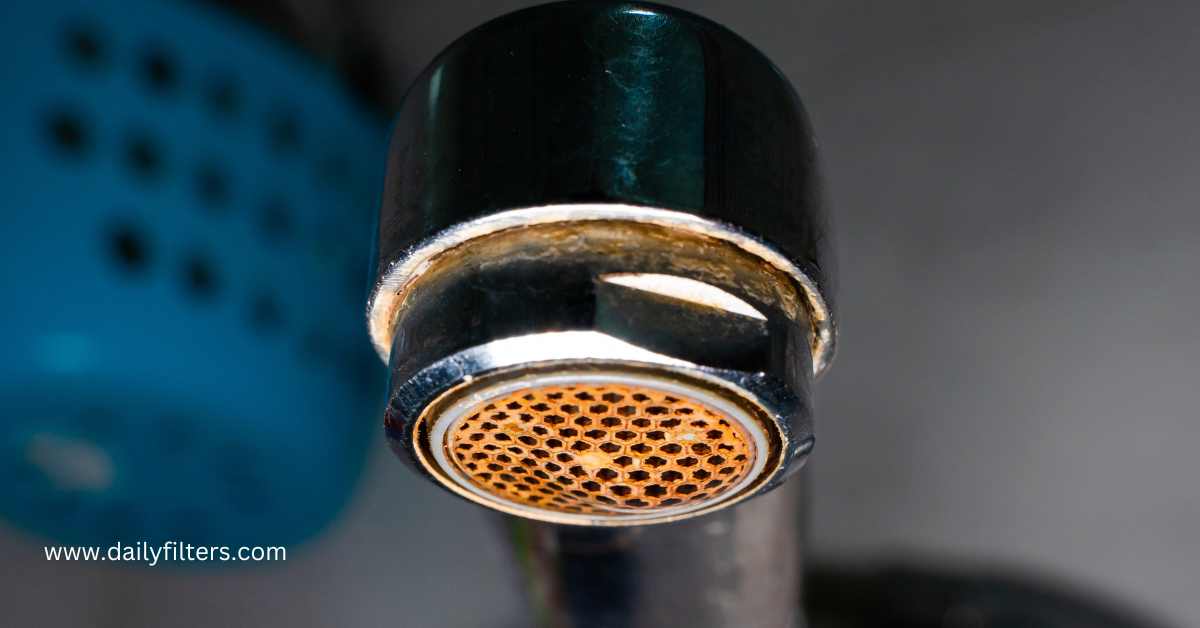If you’ve noticed a white film on your dishes after washing them or a reddish-brown stain on your clothing or sinks, your house may have hard water. What is hard water precisely, is it beneficial, and why is it significant? This article will explain the foundations of hard water, including its history, benefits, downsides, and remedies.
What is Hard Water
High concentrations of liquefied minerals, primarily calcium and magnesium, are found in hard water. Before reaching your tap, water travels through rocks and soil, where these minerals are found. Iron, manganese, and other substances that alter the taste and color of hard water are also possible.

Around the globe, homes are often affected by the problem of hard water. The quality of your water and your life may be improved by understanding what hard water is and how to soften it.
Causes of Hard Water
The main reason for hard water is the existence of minerals in the water source. These minerals are dissolved in the rocks and soil through which the water flows before getting to your home. Calcium and magnesium are the most typical minerals that cause hard water, which comprises compounds such as bicarbonates, chlorides, and sulfates. These compounds are what make the water hard and leave residues on surfaces.

The hardness of water can change depending on the geology of the place and the type of water source. Groundwater, which arrives from wells or springs, tends to be harder than surface water from lakes or rivers. It is because groundwater connects more with rocks and minerals than surface water, which is more polluted by rain and snow. The hardness of water can also change over time due to natural or human factors, such as weather, pollution, or treatment processes.
The hardness of water is estimated by the amount of calcium carbonate (CaCO3) equivalent in milligrams per liter (mg/L) or parts per million (ppm). Water hardness can be classified into four categories:
- Soft water: 0-60 mg/L or 0-3.5 grains per gallon (gpg)
- Moderately hard water: 61-120 mg/L or 3.6-7 gpg
- Hard water: 121-180 mg/L or 7.1-10.5 gpg
- Very hard water: more than 180 mg/L or more than 10.5 gpg

Hard water is not a health danger but can cause problems for your plumbing, appliances, and household chores. Therefore, it is important to know the hardness of your water and how to treat it if necessary.
Benefits of Hard Water
While hard water can cause problems, it also has potential benefits. Some possible advantages of hard water are:
1. Good Source of Essential Minerals
As hard water contains dissolved minerals, it can provide some essential minerals needed for our bodies, such as calcium and magnesium.
2. May Improve Bone Health
Hard water minerals can help strengthen bones and prevent osteoporosis.
3. Better Taste
Some people prefer hard water over soft water, as it can have a slightly mineral taste.

However, it is worth noting that these potential benefits are not unique to hard water and can also be obtained from other sources. Moreover, the above benefits are associated with mild to moderately hard water. Severe hard water can cause several problems and make it challenging to utilize it effectively.
Effects of Hard Water
Hard water can have various impacts on your residence and your health. Some of the anticipated impacts of hard water are:
Plumbing and Appliances
Hard water can create scale deposits inside pipes, faucets, showerheads, water heaters, dishwashers, washing machines, and other appliances that use water. These sediments can decrease water flow, raise energy consumption, damage devices, and condense lifespan. Hard water can also cause erosion and rusting in metal pipes and fixtures.

Cleaning and Laundry
Hard water can interrupt the action of soap and detergent, making it harder to remove dirt, grease, and stains from dishes, clothes, and surfaces. Hard water can also leave behind a white film or spots on glassware, silverware, tiles, and mirrors. Hard water can also make fabrics stiff, dull, and fade, reducing durability.
Personal Care
Hard water can affect your skin and hair by lowering their moisture and leaving a residue of minerals. Hard water can cause dryness, itching, irritation, and skin flaking. It can also cause your hair to become dull, brittle, frizzy, and inclined to breakage. Hard water can also worsen some skin conditions, such as eczema, psoriasis, and acne.
Health
Hard water is not a health hazard, but it can have some minor effects on your health. Hard water can affect the flavor and smell of your drinking water and food. It can also reduce the efficacy of some medications that dissolve in water. Some analyses have indicated that hard water may help prevent cardiovascular diseases and kidney stones, but more research is needed to confirm these claims.

Hard water is a common problem that affects many households around the world. By understanding its effects and how to deal with them, you can enhance the quality of your water and your life.
Testing for Hard Water

If you suspect you have hard water in your home, you may want to test it to confirm its hardness level and decide if you need any treatment. There are different ways to test for hard water, such as:
Soap Test
This is a simple and quick test you can do at home with a clear bottle, tap water, and liquid soap. Fill the bottle to the center with water, add a few drops of soap, and shake it vigorously. If the water forms many bubbles and looks clear, you have soft water. You have hard water if the water forms few or no bubbles and looks cloudy or milky.

Wet-Strip Test
This is a more accurate and reliable test you can do at home with a kit that you can buy online or at a hardware store. The kit contains paper strips that change color when exposed to different levels of minerals in the water. You fill a container with tap water, immerse the paper strip in the water, and then compare the resulting color of the strip with the kit’s chart. Based on the result, the instructions will tell you how hard your water is.

Laboratory Test
This is the most precise and comprehensive test you can do by sending a sample of your water to a certified laboratory for analysis. The laboratory will measure the exact amount and type of minerals and other contaminants in your water and provide a detailed report. This test is more expensive and time-consuming than the other tests, but it can also detect other issues with your water quality that may affect your health or plumbing.

Testing for hard water can help you determine if you need to install a water softener system or use other methods to soften your water. Doing so can prevent the problems caused by hard water and enjoy cleaner and softer water in your home.
How Hard Water Softener Works?
If you have hard water in your residence, you may need to soften it to prevent its adverse effects on your plumbing, appliances, and household chores. There are different ways to soften hard water, such as:
Water Softener System
This is the most effective and endless way to soften hard water. A water softener system is a device that removes or decreases the minerals from the water using salt or other chemicals. The system is installed when the water enters your home and softens your water. A water softener system can enhance the quality and efficiency of your water, but it also needs care and costs.
Water Filter or Conditioner
This is a less costly and more comfortable way to soften hard water. A water filter or conditioner is a device that connects to a faucet or showerhead and filters or alters the minerals in the water. The device can enhance the taste and odor of your water and decrease some scale deposits and soap scum, but it does not soften all the water you use or remove all the minerals.
Natural Remedies
This is a reasonable, eco-friendly method to soften hard water. Natural treatments are substances you can add to your water or use for cleaning and laundry to counteract some of the effects of hard water. Some examples of natural treatments are vinegar, baking soda, citric acid, borax, and lemon juice. These substances can help remove stains, spots, and odors caused by hard water, but they do not change the hardness of your water and may not be beneficial for very hard water.
Softening hard water can help you save money and energy, protect your plumbing and appliances, and make cleaning and laundry easier. You can enjoy the usefulness of soft water in your home by choosing the best way for your requirements and budget.
Conclusion
This article explains hard water’s causes, benefits, effects, and solutions. Hard water includes high levels of liquefied minerals that can cause issues for your plumbing, devices, and household chores. Hard water can have benefits, such as being a good source of essential minerals, helping improve bone health, and having a more pleasing taste for some people.
You can experiment with and treat hard water differently, such as with a water softener system, a water filter or conditioner, and natural remedies. Applying the above methods can improve your water quality and your life.

